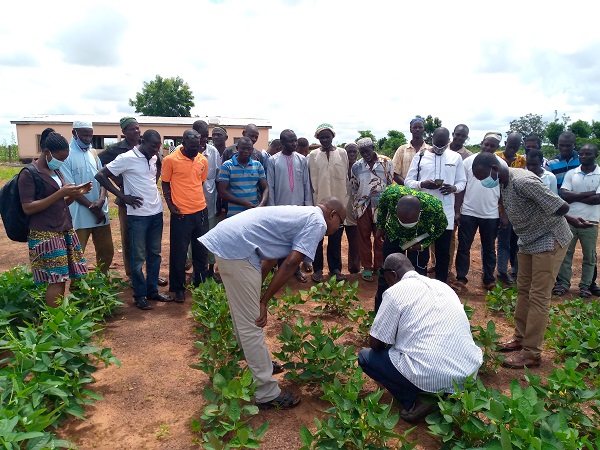The Savanna Agricultural Research Institute (SARI) of the Council for Scientific and Industrial Research (CSIR) has called on government to regularize BT cowpea, a genetically modified variety.
The new insect resistant improved cowpea variety developed by the Institute in collaboration with partner institutions, has the potential to boost cowpea production by nearly 10 percent annually over the next five years, according to SARI.
This, it argues, would contribute to strengthening food security, improve the livelihoods of smallholder farmers as well as help the country to reduce its reliance on imports. Against this backdrop, it said the government must fast track its introduction.
This came to light when the media, farmers, agricultural and seed experts, among others, were introduced to the new BT cowpea variety project trial field in the Northern Region.

The sensitization event organized by SARI in collaboration with the African Agriculture Technology Foundation (AATF) was to allow the participants to familiarise with the research and breeding process, from the source of the gene which came from Monsanto through AATF and how the various trials were conducted by SARI.
Dr. Ibrahim Atokple, a research scientist said, the innovation was developed and evaluated through a joint public-private partnership with the Commonwealth Scientific and Industrial Research Organisation in Australia, AATF in Kenya and SARI as well as other institutions in Ghana, Nigeria and Burkina Faso.
He explained that SARI will multiply the seeds of the BT cowpea for commercial quantities for farmers to plant when regularized. “Ghanaians are already eating Genetically Modified Organisms (GMO) foods without knowing it due to the food imported into the country. It has come to stay and therefore needed only to be regulated because all imported foods contain GMO,” he said.
According to him, there is no risk in eating the GMO and that the moment any food is taken, being GMO or not, the digestive system produces enzymes that break down the protein or the gene into a form that would be used by the body.










